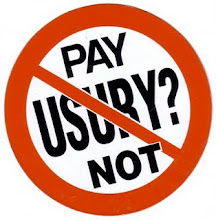Greece's 'potato movement' grows in power
It is not politicians but grassroots activism that has come to address this issue. In April, the Hellenic Statistical Authority (ELSTAT) reported a 24.6 per cent drop in potato prices from March 2011 - the largest ever one-year drop in any commodity. The reason for this historic deflation was what has come to be known as the potato movement - and it is having an empowering effect on Greeks, not only as consumers, but also as citizens and voters.
The seminal event of the movement was a free distribution of more than ten tons of spuds in the centre of Greece's northern metropolis, Thessaloniki, on February 5. It was organised by a group of farmers from the village of Nevrokopi, Greece's potato-growing capital.
The farmers were protesting against imports of Egyptian potatoes - while they had barns full of the Greek product - after a meeting between the agriculture minister and potato importers days earlier failed to yield any concessions.
A growing movement
The first to invite the farmers of Nevrokopi to sell their potatoes at wholesale prices was the Pieria Prefecture Voluntary Action Group, based in the northern Greek town of Katerini, on the foothills of Mount Olympus.
The Pieria group was formed in late 2007, after a series of wildfires devastated Greece's forests, to provide the local fire service with an early warning system. It was already busy creating a free supermarket for the destitute when it heard of the potato handout in Thessaloniki. On February 19, it organised a sale of potatoes to the Katerini public at 25 cents a kilo - one-third of market price.
Days later, the movement spread to Thessaloniki's Aristotelian University. Christos Kamenidis, a professor of agricultural marketing, organised a potato sale on campus with student volunteers. "I was worried that we would [only] sell three or four tonnes. We sold 50 tons on the first day," Kamenidis said.
"People just fell upon the produce. The producers couldn't cope with demand."
The entire greater Thessaloniki area now holds regular sales of cheap produce, and the movement has spread south to the capital, Athens, and beyond.
The potato movement is changing the food market. "Competition has increased," Kamenidis told Al Jazeera. "The stores that once sold for 75 cents are selling for 45 cents, and I heard prices as low as 19 cents." And the effect has not been limited to potatoes. Other basic durable goods such as olive oil, flour, rice, and honey have also gone on sale directly from producers, undercutting market prices by half.
Broadening the field
The potato movement is giving renewed impetus to two institutions that could have been expected to channel market economics in hard times but didn't. The first, farmers' cooperatives, were set up in the 1980s to give producers the clout to compete with wholesalers. "Cooperatives have the ability to sweep wholesalers aside, but they don't sell any cheaper," Kamenidis said. "They mark up produce even more."
Farmers' markets, set up throughout Greece to help producers compete with retailers, also reportedly fall prey to the same greed. "Producers have succumbed to the logic of the market. They are trying to gouge consumers in the same way as middlemen," Ilias Tsolakidis, who created the Pieria group in Katerini, told Al Jazeera.
The potato movement has not gone unchallenged. "Now there is a war breaking out," Tsolakidis said. "The potato sorting and packaging centres are raising their prices to producers." Controlled by wholesalers, the centres are using their leverage to inflate producers' overheads.
There are other problems. Even in these desperate times, not all producers recognised the opportunity of the potato movement they helped start, said Foteini Arnaoutoglou, a potato farmer and local organiser in the village of Vrontou, near Nevrokopi.
"Many of my fellow villagers did not believe in the movement. They thought the price was too low," she said. "Some made fun of us."
Cash in hand
Arnaoutoglou was vindicated. She and the growers she coordinates sold their potatoes at the cost price of 25 cents a kilo, and have cash in hand to sow next year's crop. Those who held out for a higher price are stuck with potatoes they may have to sell over the border to Bulgarian middlemen for 10 cents a kilo, or with cheques and IOUs from Greek middlemen that haven't been honoured in two years. She now plans to sell abroad via a website.
Perhaps the ability to foster a can-do spirit and generalise it is the potato movement's most lasting - and subtle - contribution to Greek culture. It has already begun to transform civic attitudes in Katerini. "It takes me an hour to walk a kilometre from my house to the centre of town, because people stop me and the other volunteers and beg us to take over the local government," Tsolakidis told Al Jazeera. "This happens every day. They see this movement as something very hopeful."
The group's organisational power and economic potential give it a possibly subversive political appeal. "We can mobilise more people than anyone else," Tsolakidis told Al Jazeera. "We receive about 5,500 orders for each sale of produce, representing about 45,000 people, or 55 per cent of the population of our town … Political gatherings are lucky if they get 50 people."
Potato power
Local politicians now queue to sign up for firewatch duty, said Tsolakidis. "This is how we see our role as citizens. With my behaviour I determine the behaviour of those in power. We cannot organise things like the potato movement and not have an opinion about local or national politics."
Even in places where the potato movement has nestled directly in the folds of political power, that power is tinged with anti-authoritarianism and an emphasis on individual empowerment.
http://www.aljazeera.com/indepth/features/2012/06/2012611102126662269.html



0 Comments:
Post a Comment
<< Home